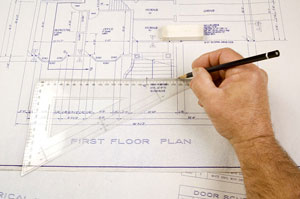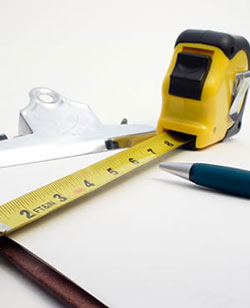| {loadposition share} |
If there is only one thing that you will read about hiring contractors, make this page that thing!
| {loadposition content300x250} |
In this article I will give you all the insider tips that seasoned general contractors use to hire subcontractors for their projects.
Some of these tips you may already know, but I'm sure many of them will be of great use to you, especially if you like to save thousands of dollars and protect yourself from being scammed by a contractor. Is that you?
I was a general contractor for seven years before the economy crashed and my $100,000 + home additions just stopped selling.In those seven amazing years my business went from a $50,000 a year business my first year to a million dollar in revenue business four years later. Along the way I also won 5 Better Business Bureau Awards for Excellence in Business Consumer Education which is basically recognition for the time spent in creating the best consumer helping articles for the remodeling industry. Remembers I'm competing with multi-million dollar conglomerates like Angie's List and she's just a lawyer. So how is she going to advise you on how to hire a contractor? Angie's List and the other big companies simply hire freelance writers who know as much about the remolding industry as I do about building a rocket to mars = nothing.
I've hired and fired a large amount of subcontractors for various home remodeling projects. I have learned many important lessons along the way that put me into credit card debit in the 5 digit range. That's why I want you to pay attention and really read this article. It's very easy to make a $20,000 mistake in the remodeling world, so if your planning a big project, you owe yourself the hindsight to learn from my mistakes.
1. How to Find the Best Remodeling Contractor?
 There's plenty of contractors for you to call, no matter what type of project you are considering. I like to use contractors who have good clean honest working history. What does that mean? I check on them with the Better Business Bureau and Department of Consumer Protections. The BBB has a website where you can type in a company name and get information about how many customer complaints are filed, how many complaints have been resolved, and how many have not been resolved. The Department of Consumer Protections also has complaint histories on businesses, but in Connecticut you have to call them.
There's plenty of contractors for you to call, no matter what type of project you are considering. I like to use contractors who have good clean honest working history. What does that mean? I check on them with the Better Business Bureau and Department of Consumer Protections. The BBB has a website where you can type in a company name and get information about how many customer complaints are filed, how many complaints have been resolved, and how many have not been resolved. The Department of Consumer Protections also has complaint histories on businesses, but in Connecticut you have to call them.
Generally speaking, you are looking for a contractor who has a pristine history. But sometimes that seems more of a fairytale then reality. Why? Well it's because there are those customers who are beyond reason, and since we don't live in a perfect world, there are great contractors who receive a few black marks from people who might be better at advocating their case to the BBB or DCP. By the way, we never had a single complaint while we were in the general construction business, building large home additions in Connecticut.
Learn How to Interview and Hire a Contractor the Right Way by learning How a General Contractor Hires Another Contractor.
How to Tell If Your Contractor Is Lying or Legit?
If a contractor was in business for 20 years, but on his record there exists 2 complaints, then you should know that the guy or gal is most likely legitimate. Because in that 20 year span, the contractor could have had thousands of customers! On the other hand, if the contractor was in business for only 5 years and already acquired 20 complaints, then you should obviously stay away from them. The only exception to this rule would be, if the contractor or company completed thousands of jobs during that five year period. Example: 5,000 jobs divided by 20 complaints, equals .004 %. You can get this information by calling the contractor directly and asking them about how many jobs they complete in one years time on average.
2. What to Ask a Remodeling Contractor During Estimate Appointment?
In the seven years that I was an actual general contractor, I learned that only a small portion of the people who called us for an estimate actually prepared themselves properly to get a proper home addition estimate. This inspired me to send preparation guides to them a week prior to our appointment. I actually sell this guide today for people looking to build home additions. It's only $7.77 but honestly I should charge a lot more for it. it's worth the money, especially if you plan on spending thousands on remodeling or building. This guide that you are reading right now is worth alot more, but I'm chosing to give this information to the public freely as a public service. (It's a shameless plug because I know how much it would help.)
So what are you building or remodeling? Do you have any ideas or sketches already, and if not, then why not? If you expect only the contractor to use his or her imagination, then you are already on the wrong side of planning a successful project! You don't need a degree in engineering to draw a few boxes on a piece of paper with room dimensions, that you can acquire yourself by laying out some measuring tape across your floor. Some contractors are really good at helping people visualize and plan their projects like home additions, others are... well let's just say, lacking in creativity.
Bottom line: If you are remodeling a bathroom, go to a tile store, pick out your tile, get a price on the tile based on the size of the room etc.. Pick paint colors, go to a plumbing supply store and pick out your faucets, toilet, and shower fixtures. Don't let the contractor give you a limited list of things to choose from, because they will! If you are ready to spend money on construction, then go out there and personalize this project before your estimate appointment. Why leave all the design and details to someone who has no idea of what you really like or don't like? It's okay to have your contractor pick the things you really don't care about, but if you want specific things, just go out there and get him or her the model numbers.
The more prepared you are for your estimate appointment, the better for you in the long run, trust me. You will know exactly what you are getting, and you can have the contractor base the estimate off the actual products you chose! This means a real accurate estimate and a quick turnaround time. Complex estimates usually for large projects can take a long time, if the contactor is doing all the guess work.
Lastly you should make it known to your contractor that you want everything to be done in writing or else you are not hiring them. We did this for our customers as a free service and because it was a Win/Win for the both of us. If we said we are giving you a Moen showerhead Model # ZXY123, then that is exactly what you are going to get. The more detail your building contract contains, the more protection and assurance you have that your project will be completed the way you want it to be. And remember that those details work in your favor, if for any reason your contractor didn't perform the job properly, on-time, or on budget, because you take them to court.
2. How Many Contractors Do I Contact for My Estimate?
The short answer is as many as it takes to get apples to apples estimates and to get comfortable with one of them!
Great! You found several contractors who have decent working history according to the records you verified with the Better Business Bureau, Department of Consumer Protections, and any other authority local to you that keeps complaint histories on businesses.
Now, how many contractors do you interview for the job? The rule of thumb is three contractors, but this does not always work, because some of the people who come out to your house to conduct the estimate, might not have the best personality, energy, mojo, or whatever you call it. Basically there are contractors who might be great at what they do, but they scare the heck out of you or just give you the heebee jeebees.
I recommend interviewing three contractors that you would feel safe with, if you had to leave your kids alone in the house with them for a half hour, while you make a bread and milk run. Don't have kids, okay then, how about picking someone who you would not expect to be going through your valuables, while you are at work.
The bottom line here is that you want to interview three experienced and respected contractors, who not only provide you with a honest project estimate, but also give you a good feeling about them as well. Don't forget that we provide a no obligation Prescreened Contractor Locating Service, to help you find good candidates to interview.
Final Words of Wisdom
I wrote this guide because I get tons of phone calls from people asking me for advice about their project. I'm guessing they researched the history of this website and they wanted to know how to do things properly. I cannot blame them because when I'm spending the big bucks, I like to do my research as well.
|
{loadposition content300x250} |
This guide will help you, most likely save you money, and probably prevent a few headaches. I know this because it took me years to figure out how to do this the right way in a commercial atmosphere. And before I learned this information, I made lots of mistakes that cost me time, money, and terrible headaches.
Please use the buttons below to email, forward, Like, bookmark, and share this article, so that more people like yourself get empowered with this information. Thank you for reading and good luck with your project.{loadposition followbtns}
{loadposition ckey}
]]>| {loadposition share} |
| {loadposition content300x250} |
A general contractor can provide the knowledge, licensing and insurance that are all requirements to complete your new home, room addition or remodeling project.
And because it's such a huge investment, it's in your best interests to get the best person for the project.
That's why interviewing several contractors is the best way to find the right company for your remodeling project or room addition.
But what questions do you ask? Use this guide to interviewing a contractor and you'll be sure to get the perfect contractor for your construction project.
Licensing and Insurance
While anyone can claim they are a builder, without the right licensing and insurance, they are as much of a contractor as you are. That's why the first and foremost question you should ask any contractor is what are your qualifications?  With a licensing number, you can easily do a background check to ensure that your contractor is licensed and insured to complete your room addition or remodeling project. A quick call to the building department can verify that your contractor is licensed and insured to work on your addition. Each municipality has its own form of licensing and insurance, so it's important to call your local building department and verify exactly what licensing your contractor needs as well as any permits or bonds that may be required to start and complete your building project.
With a licensing number, you can easily do a background check to ensure that your contractor is licensed and insured to complete your room addition or remodeling project. A quick call to the building department can verify that your contractor is licensed and insured to work on your addition. Each municipality has its own form of licensing and insurance, so it's important to call your local building department and verify exactly what licensing your contractor needs as well as any permits or bonds that may be required to start and complete your building project.
Experience
While a license and insurance certainly means they are qualified to build a room addition or start a remodeling project, it doesn't mean that they are experienced enough to do quality work. Without a long list of happy past customers, your prospective contractor might not have the experience to do a good job. Your contractor should provide you with at least three contactable references to ensure they have the knowledge to get the job done right.
Contracts
 When you're satisfied with the work they have done and their license and insurance is up to date, it's time to talk numbers. What's going to be the cost of the addition? What if it goes over budget? What's the time frame the job will be completed? Who will be working on the job besides you?
When you're satisfied with the work they have done and their license and insurance is up to date, it's time to talk numbers. What's going to be the cost of the addition? What if it goes over budget? What's the time frame the job will be completed? Who will be working on the job besides you?
|
{loadposition content300x250} |
Are they licensed and insured as well? What guarantees or warranties are provided with your work? What if there is a problem, what will you do to fix it?
Getting these questions answered and in writing can be tough. But don't give in. Always be certain to get exactly what you want before signing any contract. Most contractors are willing to please you and are willing to modify the terms of agreement when creating any contract. Contractors should also provide you with a time schedule and a cost breakdown list of the labor and materials that will be used on your room addition or remodel as well.{loadposition followbtns}
{loadposition ckey}
]]>| {loadposition share} |
| {loadposition content300x250} |
Negotiating a contract with a contractor can be a lot like getting a cavity filled-it's not very fun, but it has to be done.
Without haggling a little over the price, you're bound to get stuck with a few extra building costs.
While most contractors are looking out for your best interests; they are still out to make some money for themselves.
By using a few of these tips and tactics for negotiating with a contractor, you'll be sure to get the best deal for the best price on your room addition or renovation.
Multiple Bids - Getting multiple bids can really help you to see the big picture. While one contractor might come in with a bid at $9,000, another contractor might price their bid at $6,000-and all for the same addition to your kitchen. Receiving multiple bids can help you to tell apples from oranges. One contractor might have a deal with the local appliance center and therefore push one particular brand while another's bid allows for a wide variety of appliances. Determining which is the best deal is up to you and your extensive research between bids.
 Cost Breakdown Lists - A cost break down list is often used by a contractor to determine how much the home renovation cost will be. It also provides labor details and scheduling of the project. This is how a contractor determines how much they are going to make, typically a certain percentage of the overall building costs. Finding out what the job is going to cost will better allow you to see how much each contractor is going to make from your job.
Cost Breakdown Lists - A cost break down list is often used by a contractor to determine how much the home renovation cost will be. It also provides labor details and scheduling of the project. This is how a contractor determines how much they are going to make, typically a certain percentage of the overall building costs. Finding out what the job is going to cost will better allow you to see how much each contractor is going to make from your job.
Extras - Negotiating for extras can be a great way to get a little extra from your contractor. If they are willing to sell their bid, they will be willing to chip in a little extra for the contract. Find out which contractors extra is the most valuable and you could save big on your room addition or renovation.
Consultation - Some contractors will allow you to use their license and subcontractors to be your own DIY contractor. This can allow you to create your own personal touches on the room addition, while still remaining in tight control of the budget.
Seasonal Work - Depending upon your region, seasonal work is delegated to summer, spring and fall. Some contractors are willing to give you a break in the price on winter weather work to give them the extra work during the off-season.|
{loadposition content300x250} |
Discount Materials - Many contractors get contractor discounts at certain supply stores. Finding a contractor who is ready to negotiate on material prices is not only a good way to save money, it's also a good sign that they have a good history within the building community.
DIY - To save big bucks on your room addition or renovation, doing it yourself can help you save big time. But without the right experience, you're done for. Your contractor may allow you to do some of the lighter work like hauling debris, painting baseboard or getting materials to help you save extra money on your construction project.
{loadposition followbtns}
{loadposition ckey}]]>
| {loadposition share} |
Getting a proper estimate from your local contractor requires some homework on your part.Don't worry; the effort you put in will pay off in the end.Home addition estimates can get complex, because in some cases homeowners are doubling the size of their existing home.Adding a second story addition to a single level home is easy to do if you have the proper experience, but pretty difficult for a contractor who is just starting out. We created this simple guideline for you to follow, which will help you get up to speed.
Example - Add second bedroom and a family room. Step 2: Visualize and roughly sketch where this addition should go.
Example - If you plan on adding a bedroom it may be a good idea to take a trip to your local furniture store with a tape measure, pencil, and graphing paper. Measure the furniture that you plan on putting in the room and put its dimensions on paper. When you get home, sketch out a room that can accommodate your furniture as well as provide enough space to walk around it. Note: A Design/Build Construction Company or Residential Architect can create a virtual rendering of your home addition with the furniture in it, thus giving you a proper concept of space.
1. We suggest that you visit your local Better Business Bureau's website and research each company's performance history online. Recently the Better Business Bureau released a letter grading system making it easier for consumers to find the proper contractor or remodeling company. 2. Research each company's complaint and license history with your local Department of Consumer Protections and the BBB (Better Business Bureau). 3. A Reputable contractor or remodeling firm will have a respectable record, and preferably zero complaints filed against them. A complaint usually implies that the company or contractor failed to resolve a matter with the consumer, leaving the consumer helpless. 4. Request to see photos of previous home additions that they have built. Not every contractor knows how to build a room addition the right way, it is best to do your homework on each company before you shell out the big bucks on an addition project. 5. Request a detailed estimate and ask if the price on the estimate will stick if nothing else changes. Prices can chancge for this following reasons: Number One: During the foundation phase the contractor uncovers solid ledge, larger than the size of a small Volkswagen, which may need to be blasted in order to proceed. Number Two: A customer requests a change order, adding something such as more windows, skylights, etc. Number Three: The existing structure needs repairs due to unforeseen conditions such as termite damage, water damage, etc. 6. Request to see a copy of their home addition contract. A home addition contract should be well detailed depicting the rooms to be added, the materials to be used, and the costs that you will have to pay for. A detailed contract protects you from contractors who have little experience with large projects such as home additions. 7. Verify References. Ask for a list of references of customers who had home additions built. Ensure that they are not giving you references for other project types (example: roofing jobs, tile work, etc.). Remember a home addition is a complex project where most of the time you are completely changing the energy efficiency of a home. An experienced and reputable company knows how to engineer the project so that your electrical, plumbing, and HVAC systems work seamlessly once completed. 8. Be realistic and do not choose a company on price alone. Many times consumers choose contractors because of price alone; only to find out that the contractor they hired did not have the skill necessary to accomplish their project properly.It is wise to remember that in the beginning it may seem that saving a couple thousand on a hundred thousand dollar project is a big deal, but if the contractor you hired makes inexperienced mistakes, you will have to cough up more money later. In conclusion finding the right company to build your home addition should be done with care. It is easy to become another statistic if you decide to not follow some guidance.
You can use our free contractor locating service and find out who we think you should be talking to about your room addition project. Get a list of local contractors in less than 48 hours by filling out the form below. Alternatively you can call 855-Hire-Home and answer your project questions over the phone. {loadposition followbtns} {loadposition ckey} |
|
{loadposition share} |
|
{loadposition content300x250} |
Finding the right architect is an important step for any major renovation like a home addition or new construction project such as a new home. Before you start looking through the Yellowpages or the internet for the right architect, you first have to decide on a few key factors.
What Level of Detail Do You Actually Need in Your Architectural Plans?
If you are looking for simple construction plans that you want to submit to your town hall to start construction, you should bypass the idea of acquiring 3D renderings of the house exterior or interior from an architect. This is especially true if you are trying to keep your project costs and design fees down.
The additional time needed to polish a 3D rendering will increase your design costs and it's not a requirement for any town hall. Just keep in mind that your design costs can increase greatly, if you plan on paying an architect to also do your conceptual design work.
What Is Conceptual Design Work?
Conceptual design work is what you can find all over SimplyAdditions.com for FREE! These are 3D renderings developed by qualified house designers, not architects. House Designers can take your ideas and use the same software an architect uses to develop the look and feel of your project at a much lower cost. You can then provide the house designs to your architect electronically using industry standard file formats such as: .DWG or .Plan files, and have the architect do the calculations, beam loads, and various other checks on the plans to make them construction ready. Because your architect will have most of the design work done already, they will require less time to complete your project which of course saves costs.
Getting The Conceptual Designs Done Inexpensively
A popular alternative to hiring an architect for the conceptual design work is hiring a qualified house designer instead. They can easily create conceptual designs for residential construction projects such as home additions, two story home extensions, and even new construction projects. You can always give your conceptual designs to your architect and save even more money off of your project, because your architect will have a concept that they can work from right away.
Without having the concept drawings in hand, you'll have to sit down with the architect and go over all the design ideas, which of course the architect will have to bill you for. On the other hand, you can hand them your conceptual designs (like our house plans or home addition plans), and they will be able to cut your consultation time dramatically, which will save you cash.
What Level of Detail Plans Do I Need To Start Construction
We have built many home additions in Connecticut with simple building grade plans that include just the minimum requirements most town halls would ask for. If you're looking to have your project conceptualized using the latest architectural software to give you a virtual idea of what your actually building, be prepared to pay the additional cost which will have little bearing on what the town hall actually needs in order to proceed with the project.
There are many home designers like SimplyAdditions.com that can design your project in great detail without having to shell out the big bucks for paying an actual architect to do the design work. Why the dramatic cost difference? House Designers can be trained general contrators, engineering students, and even construction managers who know just enough about architectural design to provide you with a great 3D virtual concepts of the project your aiming to build. The design fee a house designer charges is generally a lot cheaper than what the same thing would cost you, if you hire an architect.
10 Tips For Finding An Architect or House Designer
1. Before you fire up a search engine or pick up the yellow pages, your first step should be to ask your friends, neighbors and co-workers for referals from people they know or have done business with.
2. Special projects require someone who has experience in that particular area. If you have a historical home that you are restoring, you should check with the local historical society or the zoning board to see who they used in the past.
3. Use Google to find architects and house designers near your zip code.
4. Call the architects and house designers you find and interview them.
 5. Discuss all fees before you sign any paperwork.
5. Discuss all fees before you sign any paperwork.
6. Always ask for references from similar design projects.
7. Ensure that your architect has the required licenses and that they are still active.
8. Ask for the addresses of similar projects they worked on.
9. Find local professionals on Better Business Bureau and the Local Chamber of Commerce. Check to see if your architect or house designer is a member. Architects and designer who care about their work and customer service tend to be a member of these affiliations.
10. Make sure that the personality of your architect is something that is compatible with yours. You will be working with this person for many months, so it's always a good idea to find people you get along with.
For large projects like Room Additions, Custom Homes, & Sunrooms, you can get free estimates for design work simply by filling out the form below.
{loadposition followbtns}
{loadposition ckey}
| {loadposition share} |
Poor planning can result in construction delays, building troubles, construction rework, and overages.Ask your contractor prospects how do they plan their project.Do they do it off the top of their head, a notepad, Microsoft Excel spreadsheet, special software, etc.Expert DesignPoor design can lead to structural problems, aesthetic problems, HVAC problems, plumbing problems, and a reduced level of home efficiency.Ask your contractors who does their design work. Do they do all the design in-house? Do they have their own architect? How many years experience does the design person have? Expert ManagementPoor management can lead to quality problems, construction delays, disorganized job-sites, hazardous job-sites, and increased preventable property damages.Ask about how the management of the project is handled. Is their a project manager on site everyday? What happens when there is a problem? A good contractor should be able to answer this with ease. Customer ServiceMeager customer service can leave you feeling stressed, unsure about the progress or results, and unsafe about the future of your project.Ask your contractor how your questions and concerns will be handled before you hire them. Do you get their personal cell phone number? Do you send an email? Find out how all customer service issues are handled. Expert in Building Additions
Better Business Bureau AccreditedNon members may not care about how consumers perceive their quality and business ethics; construction results can be less than average.It does make it easier for a homeowner to pick a contractor that is accredited with the Better Business Bureau, but it is not a must have. If they are, you can usually look up their complaint history through your local BBB website. Clean Consumer Protections RecordComplaints should be viewed as a sign of negligence; a complaint history reflects that the hired company never addressed what the consumer said was not acceptable to them.Sometimes honest contractors get complaints from unreasonable people, it does happen, but if the contractor has an extensive complaint history, you may want to steer away from hiring them. Ask your contractor about their complaint history and look it up with your local BBB and DCP. Active License & Insurance PoliciesUnlicensed contractors sometimes lie about their experience and contractors without insurance policies can be a homeowner's most expensive mistake. Before you hire anyone, tell them that you will need their license and insurance policy numbers.
Detailed Contracts and QuotesIf it is not written down they do not have to give it to you and it will not hold up in court. This is one of the biggest reasons homeowners lose lawsuits against contractors, because lack of detail in the contract equates to lack of proof in the court room.Ask your contractor about the level of detail that will be given for your project. Ask if you can specify the level of detail yourself. A professional contractor should be able to handle your request with ease, because they will be tracking all the details of your project on a computer anyway. {loadposition followbtns}
| |||
| {loadposition share} |
Don't be fooled, there's truth to some of that bad publicity contractors get in the local media.Simply Additions is here to help you make a wiser decision so you won't regret your remodeling decision in the future.
You probably heard of stories like this on the news, HGTV, and home flipping shows.
We are here to make this process really simple for you. If you don't want to read all of our articles on how to investigate and choose a contractor, just do the following three steps and your chances of having a positive experience will be much greater than if you didn't!
Due Diligence Time!{loadposition followbtns} |
{loadposition ckey}]]>
| {loadposition share} |
| We strongly suggest that you contact your local Better Business Bureau and Department of Consumer Protections to review the contractors'/remodeling companies background whom you are thinking of hiring.
These resources can provide you with a wealth of information, and in doing so you will learn if the contractor/remodeling company is truly reliable and honest. Did you read a our famous How To Guide on Hiring a Contractor? | |||||||||||||||||||||||||||||||||||||||||||||||||||||||||||||||||||||||||||||||||||||||||||||||||||||||||||||||||||||||||||||||||||||||||||||||||||||||||||||||||||||||||||||||||||||||||||||||||||||||||||||||||||||||||||||||||||||||||||||||||||||||||||||||||||||||||||||||||||
| |||||||||||||||||||||||||||||||||||||||||||||||||||||||||||||||||||||||||||||||||||||||||||||||||||||||||||||||||||||||||||||||||||||||||||||||||||||||||||||||||||||||||||||||||||||||||||||||||||||||||||||||||||||||||||||||||||||||||||||||||||||||||||||||||||||||||||||||||||
|
Contractor Background Check Assistance |
|
{loadposition adsense2} |
| {loadposition share} |
Always Check ReferencesChecking contractor references is something that most people do not take the time to do.Trust us when we say that checking your contractors references is one of the most important things you can do!Speed
Quality
|
|
{loadposition content300x250} |
-
Physically inspect past project sites.
-
Check references from past customers.
-
Ask about how many similar projects they have completed in the past.
-
Look for a solid detailed contract and make amendments if needed to clarify the terms of your verbal discussions.
-
Check their Better Business Bureau & Consumer Protections records.
Use our Find My Professional Service to find out who we think is worth calling in your area.
Simply fill out the form below to get your list of contractors to contact, and always remember to use our Hiring Guides to interview all of your choices!
{loadposition followbtns}
{loadposition ckey}
| {loadposition share} |
Remodeling nightmares are common in the home improvement industry.We all have either read about unsuspecting homeowners being ripped off, know someone who has, or saw something on TV.The fact is that it is a real problem, and the only way to protect yourself from shoddy work and bad contractors, is to do your homework before you hire one by accident.You might have a major remodeling project on the horizon and you know that you need a contractor with experience. However, how do you find one that you can rely on? Here are a few tips. Asking questionsDon't be afraid to ask your contractor the hard questions. Those who don't ask because they assumed the contractor would perform well, have found that this step could have saved them lots of trouble and loads of money. Prepare all of your questions before hand, and when your time comes to meet with the contractor, have them in front of you while you interview them. Are they licensed?If a contractor does not have the sense to get the proper license to work in the area you are looking to hire for, you should not even consider hiring them. These fly by night contractors can be found pleading their case in small claim courts or on Judge Judy, daily. Stay away from any contractor who does not have a valid license. Find out about their complaint historyThere are some local business affiliations like the Better Business Bureau and the Department of Consumer Protections that keep track of complaints from consumers doing business with contractors. Call these places and give them the name of the contractor you are looking to hire. Find out the complaint history and see if the contractor has resolved it. Ideally, you would like to pick someone with a clean history, but sometimes that is hard to do. Also, be sure to ask your contractor personally about their complaint history.
If a contractor doesn't have references, you can be sure that either they are bran new to the field or the work they have done is not up to standards. To put it plainly do not hire any contractor without references, it is a rookie homeowner mistake and it can cost you thousands. Questions to ask past clients of your contractor
Checking InsurancesAsk your contractor for a copy of their Workmen's Compensation Insurance and General Liability Insurance certificate. Once you have the copies, ensure that the dates are valid. In addition, you should call the insurance carrier of both policies and ask that they verify that the current policy is still active with the same coverage specified on the insurance certificate. Sometimes shoddy contractors fake these documents, because most homeowners who obtain them never call the insurance carrier to validate their authenticity. Find out where they do business from
How To Hire A Contractor? - Details, it is all about the details
Get your estimate in writing and make sure that all the details about your job are written in there. If it is not written down, then the contractor does not have to deliver it. Just imagine if you went to court with the contractor, would their estimate and contract protect them or you? {loadposition followbtns}
|
 Step 4: Find a qualified company.
Step 4: Find a qualified company.  Non specialized home improvement companies may not know how to handle HVAC, Plumbing, and Electrical work properly; also increased construction delays and change orders are common.If you are building a large project such as a room addition, you will need someone with experience. Find out exactly how many room additions this contractor has built, and ask for references.
Non specialized home improvement companies may not know how to handle HVAC, Plumbing, and Electrical work properly; also increased construction delays and change orders are common.If you are building a large project such as a room addition, you will need someone with experience. Find out exactly how many room additions this contractor has built, and ask for references.  Home additions and major remodels can get expensive, especially when they are built properly. These project can get even more expensive if they were built incorrectly in the first place, then have to be rebuilt for safety or aesthetic purposes.
Home additions and major remodels can get expensive, especially when they are built properly. These project can get even more expensive if they were built incorrectly in the first place, then have to be rebuilt for safety or aesthetic purposes.  Contracts
Contracts Do they have references?
Do they have references?